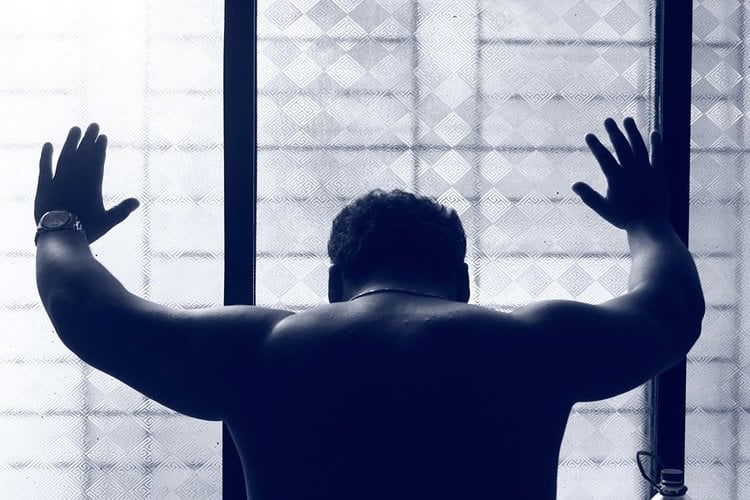Summary: A new study reports on a link between racial discrimination and suicidal ideation within the African American community.
Source: University of Houston.
Racial discrimination, whether it’s derogatory language or unequal treatment, impacts communities and individuals in different ways. For children, the effects are sometimes emotional scars, and as a University of Houston researcher discovered, even thoughts of death.
UH psychology professor Rheeda Walker was the lead researcher on the study “A Longitudinal Study of Racial Discrimination and Risk for Death Ideation in African-American Youth.” It soon will be published in the journal Suicide and Life-Threatening Behavior and can be viewed online.
Walker used data previously collected from interviews with 722 African-American children recruited from schools in Georgia and Iowa. These boys and girls were interviewed at age 10 and again at age 12. In her analysis, Walker noted that more than one-third of the adolescents reported death ideation, or thoughts of death or dying. This ideation was accounted for in part by experiences of racial discrimination. Although thoughts of taking one’s life were rarely expressed or asked about during interviews, Walker indicated that death ideation can be a predictor of suicide. Her findings may assist in drawing attention to students in crisis, as recent studies have found an increased number of suicides by African-American children. Walker addressed this issue in a recent online op-ed for Ebony magazine.
During interviews, students responded to questions related to racially motivated slurs, insults and unfair treatment, as well as experiences in which low expectations were placed upon them because of their race.
Walker’s findings offer crucial insight for educators and parents, who can perhaps implement interventions if they suspect or observe mistreatment of children because of race, as well as feelings of anxiety or stress following incidents of discrimination. She observed that girls who expressed nervousness, fear or depression as a result of racial discrimination were somewhat more likely to think about death than boys.

Although her study does not detail possible interventions, Walker indicated that parents and educators can implement or encourage adaptive coping methods to support children affected by racial discrimination. Adaptive coping methods include encouraging children to talk about their feelings either with parents or friends or documenting them through journal entries.
“When a child experiences discrimination, he or she may say to themselves, ‘I’m not worthy’ or ‘I’m not good enough,'” Walker said. “Effective interventions can offset these feelings and help a child’s self esteem.”
Additional interventions could take the form of multicultural curriculum in schools that promotes inclusivity, she said.
The data that Walker studied is part of the Family and Community Health Study (FACH), a nonclinical study of risks and resources affecting the development African-American youth. The FACH study was coordinated at the University of Georgia. Walker’s study also originated at the University of Georgia.
Additional researchers on this study included David Francis, Hugh Roy and Lillie Cranz Cullen Distinguished University Chair; University of Georgia faculty members Gene Brody and Ronald Simons; University of Iowa professor Carolyn Curtona, and University of Connecticut. professor Frederick Gibbons.
Funding: This research was supported by funds from the National Institute on Drug Abuse (NIDA) Core Center of Excellence grant (P30 DA027827), the National Institute of Mental Health (NIMH; MH48165, MH62669), and the Centers for Disease Control and Prevention (CDC; 029136-02) awarded to Ronald Simons, PhD; NIMH (MH62666) awarded to Carolyn Cutrona, PhD; and NIDA (DA021898, DA18871) and NIMH (MH062668) awarded to Frederick Gibbons, PhD.
Source: Mike Emery – University of Houston
Image Source: This NeuroscienceNews.com image is in the public domain.
Original Research: Abstract for “A Longitudinal Study of Racial Discrimination and Risk for Death Ideation in African American Youth” by Rheeda Walker, David Francis, Gene Brody, Ronald Simons, Carolyn Cutrona and Frederick Gibbons in Suicide and Life-Threatening Behavior. Published online May 3 2016 doi:10.1111/sltb.12251
[cbtabs][cbtab title=”MLA”]University of Houston. “Connecting Discrimination and Thoughts of Death Among African Americans.” NeuroscienceNews. NeuroscienceNews, 24 June 2016.
<https://neurosciencenews.com/discrimination-racism-suicide-4563/>.[/cbtab][cbtab title=”APA”]University of Houston. (2016, June 24). Connecting Discrimination and Thoughts of Death Among African Americans. NeuroscienceNews. Retrieved June 24, 2016 from https://neurosciencenews.com/discrimination-racism-suicide-4563/[/cbtab][cbtab title=”Chicago”]University of Houston. “Connecting Discrimination and Thoughts of Death Among African Americans.” https://neurosciencenews.com/discrimination-racism-suicide-4563/ (accessed June 24, 2016).[/cbtab][/cbtabs]
Abstract
A Longitudinal Study of Racial Discrimination and Risk for Death Ideation in African American Youth
Although multiple studies have found that African Americans commonly experience racial discrimination, available studies have yet to examine how perceived racism might be related to suicide vulnerability in African American youth. The purpose of this study was to examine a framework for how perceived racial discrimination contributes to symptoms of depression and anxiety as well as subsequent suicide ideation and morbid ideation. Data were obtained from 722 African American youth at mean age 10.56 years (SD = 0.64); a second wave of data was obtained 2 years later. Results revealed both a direct effect and mediated effects of perceived racism on later suicide and morbid ideation. For boys and girls, the effect of perceived racism was mediated by symptoms of depression. However, the association was mediated by anxiety for girls, but not for boys in the current sample. Implications for future research and interventions are discussed.
“A Longitudinal Study of Racial Discrimination and Risk for Death Ideation in African American Youth” by Rheeda Walker, David Francis, Gene Brody, Ronald Simons, Carolyn Cutrona and Frederick Gibbons in Suicide and Life-Threatening Behavior. Published online May 3 2016 doi:10.1111/sltb.12251







